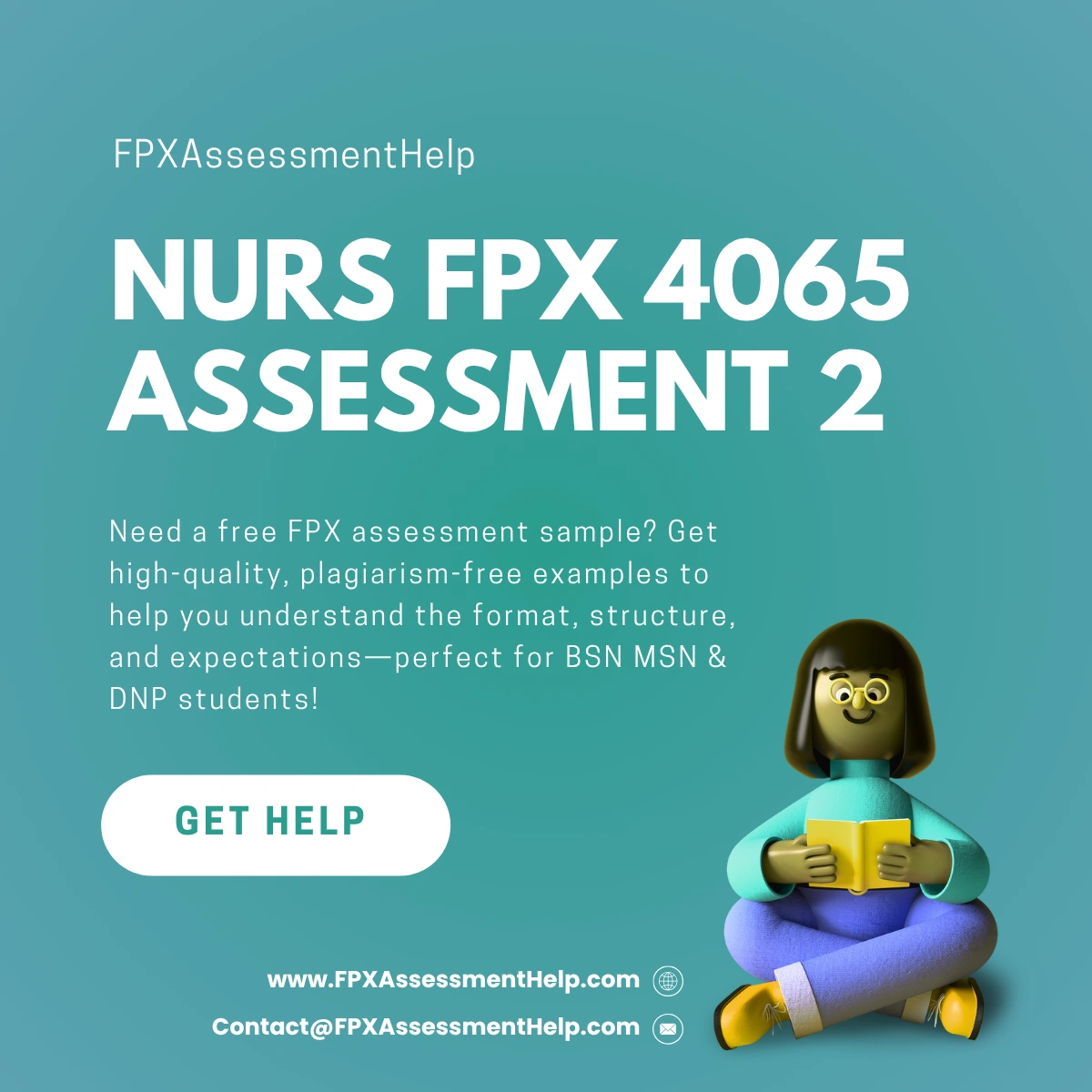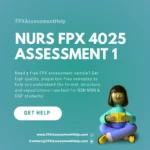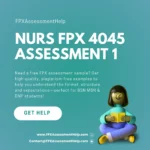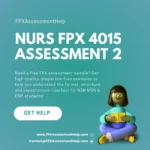NURS FPX 4065 Assessment 2 Preliminary Care Coordination Plan
Student Name
Capella University
NURS-FPX4065 Patient-Centered Care Coordination
Prof. Name
Date
Preliminary Care Coordination Plan for Adult Mental Health Patients in an Acute Health Setting
Physical Considerations and Best Practices
Risks
Mentally ill adult patients face significantly higher risks of comorbid conditions such as cardiac issues, diabetes, and respiratory illness.
People who have serious mental health disorders have a 15 to 20 years lower lifespan than others (Nielsen et al., 2021).
Best Practices
- Routine Physical Health Checks: Including BMI, blood pressure, glucose levels, lipid profiles, and smoking status
- Lifestyle changes intervention: Access to smoking cessation programs, exercise, and nutritional support should be embedded in care plans. Promoting physical activity, nutritious diet, and quitting smoking can enhance the physical and mental well-being of patients (Koomen et al., 2022).
Mental Illness
- A mental illness is related to serious changes in an individual’s reasoning, mood regulation, or behavior, which are because of impairment of biological, developmental, or psychological mechanisms that adversely affect cognitive function.
- Mental diseases are correlated with major suffering or malfunctioning in professional, societal, or other crucial tasks.
- Every year, one in every fifth of adults in America experiences psychological issues.
- Florida (FL) has 2,889,000 adults with psychological conditions.
- 40.9% of adults in FL in 2021, were suffered from depression and anxiety (National Alliance on Mental Illness [NAMI], n.d.).
Cultural Considerations and Best Practices
- Cultural difficulties, such as traditions, stigma and misconceptions, restrict patients from seeking professional psychological help.
- Culturally Adaptable Care: Patients’ needs, beliefs, and preferences must be integrated in the care plan to ensure culturally adapted care (Ahad et al., 2023).
- Culturally Competent Education: Raise awareness and knowledge about mental illness while also reducing negative perceptions. Instructional services can be offered in various methods, including in-person sessions (Ahad et al., 2023).
Psychosocial Considerations and Best Practices
- Psychosocial considerations in mental illness encompass emotional, behavioral, and societal wellness, affecting how patients perceive, feel, and perform, and in what way they manage stress, and make decisions.
Evidence-Based Practices
- Psychological Intervention: Offering Mindfulness-based cognitive therapy (MBCT) which is a treatment approaches that incorporate cognitive counseling with mindfulness activities to help avoid depressive recurrence (Gkintoni et al., 2025).
- Emotional Support and Coping Strategies: Offering emotional assistance and educating patients about coping methods to manage their emotions, such as deep breathing, yoga, and meditation.
- Group psychotherapy: Benefits patients by promoting affiliation, universality, confidence, compassion, and dignity (Marmarosh et al., 2022).
NURS FPX 4065 Assessment 2 Preliminary Care Coordination Plan
Underlying Assumptions and Uncertainties
- It is assumed that interventions like MBCT and lifestyle changes are equally effective for all patients.
- It presumes that culturally adapted care and education will effectively reduce stigma across all communities
- It is uncertain whether culturally adapted care and stigma-reduction efforts will be effective across all cultural groups
- There is uncertainty around the practical implementation of holistic, integrated care in acute settings, given potential limitations
SMART Goals
- Organize weekly sessions of Mindfulness-Based Cognitive Therapy (MBCT) for psychological adult patients of FL, to reduce depressive symptoms and improve emotional regulation, as measured by a 40% improvement on the PHQ-9 scale within six months.
- Conduct biweekly culturally tailored mental health education sessions to improve 60% understanding of mental illness and reduce stigma, as measured by a pre- and post-session stigma perception survey, within six months.
Mental Health Association of Central Florida (MHACF)
- It address psychosocial aspects and ensures continuum of care by offering programs, including inexpensive mental health education and professional connections via “Mental Health Connections program”, free psychological treatment, and peer counseling Rehabilitation services (MHACF, 2025).
- Contact: 407-898-0110
- Address: 605 E Robinson St., Suite 450, Orlando, FL 32801
Community Resources
Caron Florida
- It offers care continuity by offering “mental health Program” which offers Personal and group treatment for tackling mental illnesses, like cognitive behavior therapy (CBT), dialectical behavior therapy (DBT), and other proven treatments. Through this program ensure coordination and continuum by including aspects like education, drug management in care regimen (Caron Florida, 2024).
- Contact: 1-855-548-0352
- Address: 7789 NW Beacon Square Blvd, Boca Raton, FL.
NAMI Florida
- They ensure care coordination and continuity by offering assistance, psychological guidance and advocacy to improve patient mental wellness
- Contact: 850-671-4445
- Address: P.O. Box 302, Ocala, FL 34478. (NAMI Florida, 2025).
Care Resource
- It provides individualized and group treatment to address a variety of psychological problems. They provide competent, patient-centered care that corresponds to each patients’ need. For people without insurance, services are offered on a sliding fee scale, and some programs are funded through grants, making them free or low-cost, ensuring care continuity.
- Contact: 305-576-1234
- Address: 3510 Biscayne Blvd. Miami, FL 33137 (Care Resource, 2025)
References
Ahad, A. A., Sanchez-Gonzalez, M., & Junquera, P. (2023). Understanding and addressing mental health stigma across cultures for improving psychiatric care: A narrative review. Cureus. https://doi.org/10.7759/cureus.39549
Care Resource. (2025). Behavioral health. Care Resource. https://careresource.org/services/behavioral-health/
Caron Florida. (2024). Mental health program. Caron Transformational Care. https://www.caron.org/treatment-programs/mental-health-program
Gkintoni, E., Vassilopoulos, S. P., & Nikolaou, G. (2025). Mindfulness-based cognitive therapy in clinical practice: A systematic review of neurocognitive outcomes and applications for mental health and well-being. Journal of Clinical Medicine, 14(5), 1703. https://doi.org/10.3390/jcm14051703
NURS FPX 4065 Assessment 2 Preliminary Care Coordination Plan
Koomen, M., van, J., Deenik, J., & Cahn, W. (2022). Lifestyle interventions for people with a severe mental illness living in supported housing: A systematic review and meta-analysis. Frontiers in Psychiatry, 13, 966029. https://doi.org/10.3389/fpsyt.2022.966029
Marmarosh, C. L., Sandage, S., Wade, N., Captari, L. E., & Crabtree, S. (2022). New horizons in group psychotherapy research and practice from third wave positive psychology: A practice-friendly review. Research in Psychotherapy: Psychopathology, Process and Outcome, 25(3), 643. https://doi.org/10.4081/ripppo.2022.643
MHACF. (2025). About us. Mental Health Association of Central Florida. https://mhacf.org/learn-more/
NAMI Florida. (2025). Mission. National Alliance on Mental Illness Florida. https://namiflorida.org/about-nami-florida/mission/
National Alliance on Mental Illness. (n.d.). Mental health in Florida. National Alliance on Mental Illness. https://www.nami.org/wp-content/uploads/2023/07/FloridaStateFactSheet.pdf
Nielsen, R. E., Banner, J., & Jensen, S. E. (2021). Cardiovascular disease in patients with severe mental illness. Nature Reviews Cardiology, 18(2), 136–145. https://doi.org/10.1038/s41569-020-00463-7
NURS FPX 4065 Assessment 2 Preliminary Care Coordination Plan
Stein, D. J., Palk, A. C., & Kendler, K. S. (2021). What is a mental disorder? An exemplar-focused approach. Psychological Medicine, 51(6), 894–901. https://doi.org/10.1017/S0033291721001185





